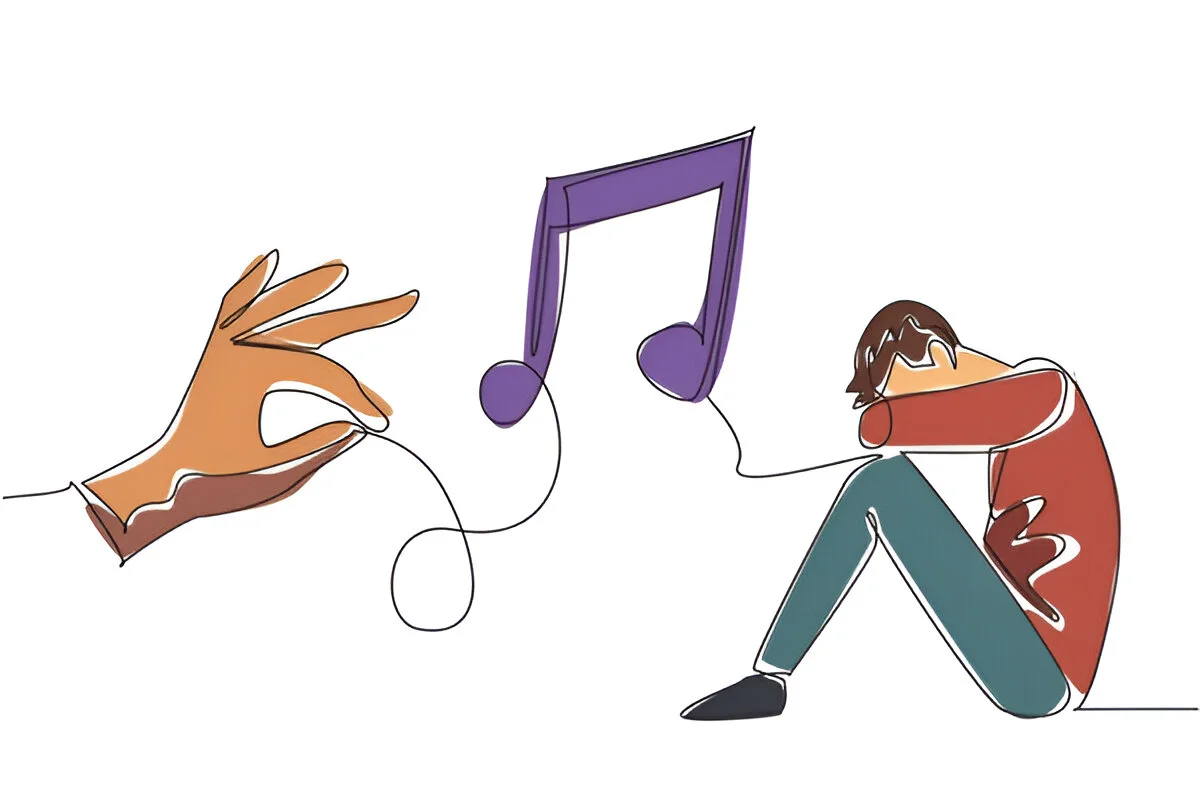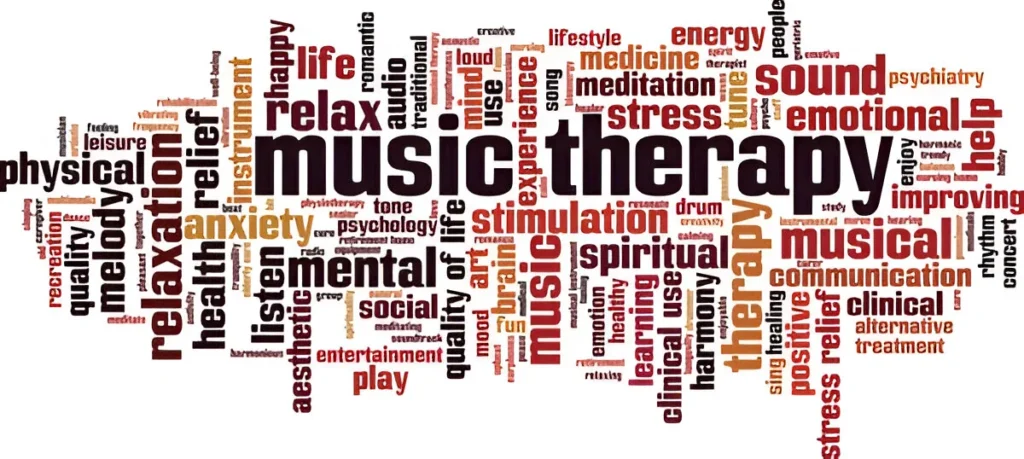-
129, Block-A Bangur Avenue, Mousumi Appartment, Kolkata 700055
129, Block-A Bangur Avenue, Mousumi Appartment, Kolkata 700055

Emotional healing can be supported through music therapy. Learn how expert-guided practices, backed by a reputed psychological counselor, bring real relief.
We’ve all experienced it—that one song that brings tears to your eyes or another that uplifts your spirit instantly. Music isn’t just entertainment; it’s a mirror, a comforter, and sometimes, a healer. As modern therapy evolves, music has emerged as a compelling tool for emotional healing, helping people process trauma, anxiety, depression, and even grief in surprisingly powerful ways.
But what makes music such an effective medium for healing? Let’s dive into the science and soul of it.

Music is deeply intertwined with human emotion. From lullabies that soothe babies to anthems that unify nations, sound shapes how we feel, think, and remember. Neurologically, music:
Because of this, music becomes more than just background noise—it becomes a therapeutic bridge to the subconscious.
Music therapy is a clinical, evidence-based practice that uses music interventions to achieve specific goals. Guided by a trained professional—often someone certified in psychology or behavioral sciences—music therapy involves:
This isn’t about learning music or becoming a musician. It’s about engaging with music intentionally to process emotions, reduce stress, and restore mental balance.
Let’s explore how music therapy supports emotional healing, step by step.
Many people struggle to verbalize what they feel. Music, with its symbolic and non-verbal nature, gives them a voice.
Certain songs are tied to personal memories—some joyful, some traumatic. With the guidance of a therapist, these memories can be revisited safely.
Energetic rhythms and positive lyrics activate areas in the brain responsible for mood and movement.
Soothing music helps anchor the mind in the present moment, a core principle in healing.
Scientific research has steadily supported the use of music therapy in both individual and group settings. Studies have shown:
Notably, much of this work is done under the guidance of professionals often recognized as leading psychological counselors in urban mental health settings, ensuring the practice remains both therapeutic and clinically grounded.

Let’s simplify the core benefits:
🔹 Safe Space Creation – Music allows emotional release without confrontation
🔹 Non-verbal Expression – Helpful for trauma survivors or children
🔹 Motivational Boost – Encourages action, especially in depressive states
🔹 Social Connection – Group sessions foster empathy and sharing
🔹 Physical Relaxation – Reduces body tension and promotes better sleep
Music therapy is not one-size-fits-all. It adapts beautifully to different emotional states and life situations.
It’s essential to note: music therapy isn’t just playing songs. It requires a trained, credentialed counselor to assess emotional readiness, guide experiences, and create safety. These professionals blend psychology with art to ensure each session is not only creative—but also clinically effective.
Working with someone who understands both mental health and musical intervention deepens the results significantly. Just as you wouldn’t take medication without a doctor’s input, you shouldn’t dive into therapeutic music practices without someone trained to curate and guide the process.
Let’s briefly revisit how emotional healing manifests in practice:
And it’s not always slow or meditative. Sometimes, a loud beat or powerful vocal performance is what brings release. The beauty lies in customization, guided thoughtfully.

Q1: Do I need to know music or play instruments to try music therapy?
A: Not at all. Music therapy focuses on experience and expression, not talent or performance.
Q2: Can music therapy help with childhood trauma?
A: Yes. It’s particularly effective for those who find it hard to verbalize early experiences.
Q3: How long does it take to see results?
A: While some clients feel immediate relief, consistent sessions (weekly or bi-weekly) yield deeper emotional transformation over time.
Q4: Is music therapy scientifically backed?
A: Absolutely. Numerous studies validate its impact on mood, trauma recovery, stress, and neurological health.
Q5: Can music therapy be used alongside talk therapy?
A: Yes. In fact, many professionals blend talk therapy with music for a more holistic approach.
In a world where emotional burdens often go unspoken, music offers a sacred space for release, reflection, and growth. It bypasses mental blocks, taps into memory, and provides a soulful route to emotional healing that’s as ancient as it is modern.
By working with a professional—often someone well-versed in both music and mental health—this form of therapy becomes not only therapeutic but deeply transformative.
Whether you’re healing from grief, navigating anxiety, or simply seeking inner peace, music therapy offers a gentle yet profound path toward emotional resilience.